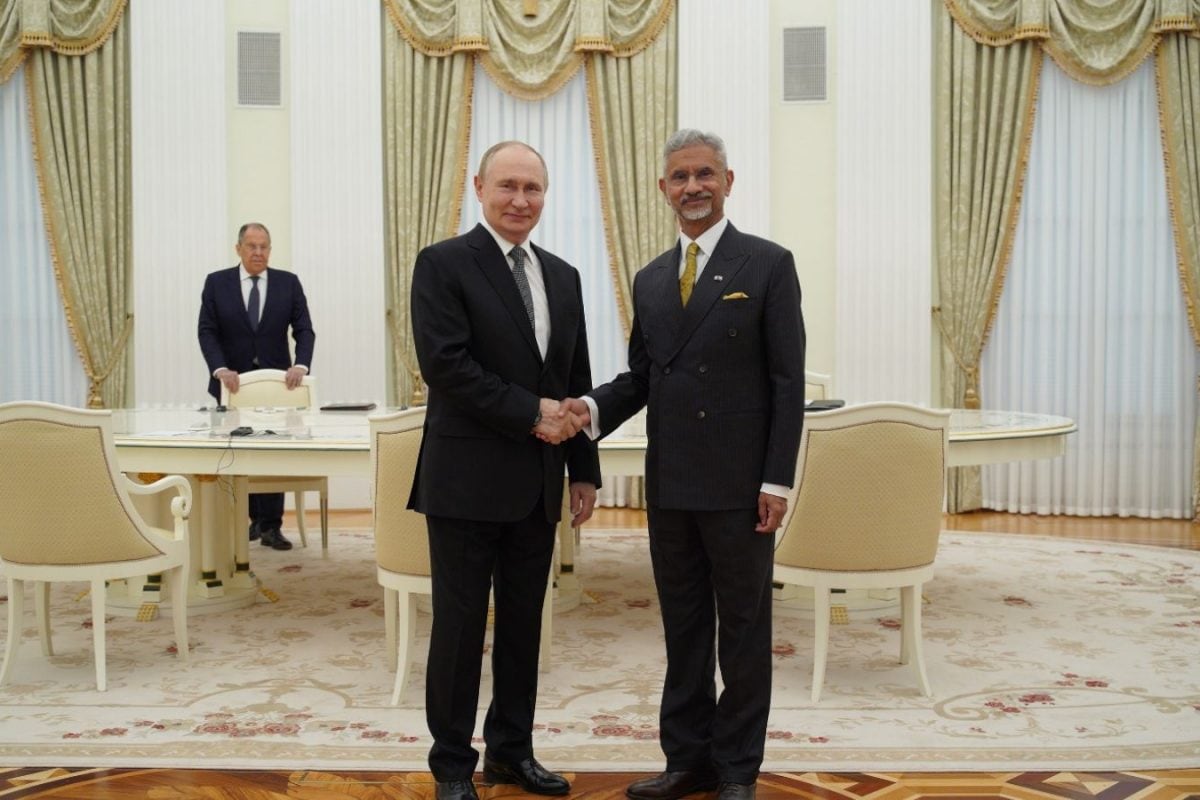

Amidst growing criticism from the United States regarding India's purchase of Russian oil, External Affairs Minister S Jaishankar met with Russian President Vladimir Putin in Moscow on Thursday. The meeting underscores the importance of the bilateral trade between the two long-time partners, even as the U.S. has imposed penal tariffs on India for buying oil from Russia despite the ongoing war in Ukraine.
Jaishankar's visit to Moscow, which includes co-chairing the 26th Session of the India-Russia Inter-Governmental Commission on Trade, Economic, Scientific, Technological and Cultural Cooperation (IRIGC-TEC), and addressing the India-Russia Business Forum meeting, signals India's commitment to strengthening its relationship with Russia.
The U.S. has been increasingly critical of India's energy trade with Russia, with U.S. Treasury Secretary Scott Bessent accusing Indian refiners of "profiteering" by buying discounted Russian crude, refining it into fuels, and reselling the products to Europe and other regions that have sanctioned Moscow. Bessent stated that India was engaging in "arbitrage" and that some of the wealthiest families in India have made $16 billion in excess profits. This criticism is primarily directed towards private refiners like Reliance Industries and Nayara Energy, which account for a significant portion of refined fuel exports to Europe.
In response to the U.S. tariffs and criticism, Jaishankar defended India's position, stating that he was "perplexed" by the logic of the U.S. argument. He pointed out that India is not the largest purchaser of Russian oil, with China and the European Union importing more. He also noted that the U.S. had previously encouraged India to help stabilize the world energy market, which included buying oil from Russia. Furthermore, Jaishankar highlighted that India's purchase of oil from the U.S. has also increased.
India has consistently maintained that its decision to purchase Russian oil is based on "market conditions" and its national interest. Russia is selling oil to India at approximately a 5% discount, providing a crucial tool for managing domestic inflation. Evgeny Griva, the deputy trade representative of Russia in India, expects India to continue buying Russian oil at the current levels, despite the U.S. tariffs. He also projected that bilateral trade between Russia and India would grow by about 10% annually.
The U.S. has imposed a 25% tariff on Indian goods, with threats to increase it to 50%. Some analysts believe that these actions reflect Washington's growing unease about the flow of Russian oil revenues, but they also risk straining relations with New Delhi. However, some experts suggest that India played a crucial role in the price cap sanction mechanism designed by the U.S. and its European allies to ensure the continued flow of Russian oil while limiting Moscow's revenue.
Despite the U.S. pressure, Russia has affirmed its commitment to continue selling oil to India. The meeting between Jaishankar and Putin reinforces the strong ties between the two nations and their intent to further expand their relationship.